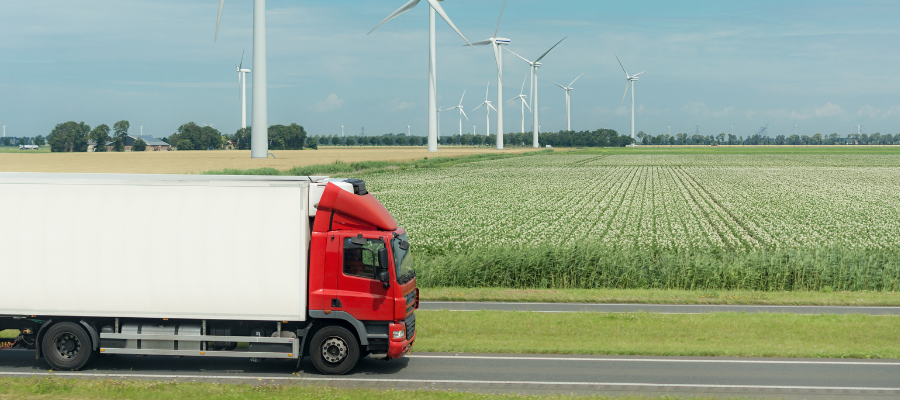🕒 Article read time: 2 minutes
Decarbonising the road sector

With the 2021 United Nations Climate Change Conference (COP26) in its final days, decarbonisation is a key priority for both the government and the logistics industry.
Held in Glasgow, the conference brings nations together to discuss and accelerate the action needed to tackle the climate change crisis.
SHIFT TO ZERO-EMISSION VEHICLES UNDERWAY
While the shift to zero tailpipe emission vehicles is already underway – and many of Logistics UK’s members are leading in this area – there is still much that needs to be done to meet the government’s deadline to be carbon neutral by 2050. According to COP26’s own research, road transport accounts for 10% of global emissions, and its emissions are rising faster than those of any other sector.
INFRASTRUCTURE CHALLENGES REMAIN
While many operators are already in the process of electrifying their van fleets, challenges remain regarding the cost of installing charging infrastructure at their depots, in addition to the potential cost of a power upgrade, should it be required to provide sufficient recharging capacity.
Additionally, the results of Logistics UK’s May 2021 Logistics Performance Tracker survey demonstrated that just under 70% of respondents were dissatisfied or very dissatisfied with the availability of electric HGVs. Understandable, given that there is uncertainty over which fuels will be the most appropriate for HGVs, with differing views around hydrogen, electrification and electric road systems.
PLANNED PHASE OUT OF NON-ZERO EMISSION HGVS
To provide greater clarity, in July 2021, the government released its Transport Decarbonisation Plan which outlined its commitments and the actions needed to decarbonise all modes of domestic transport by 2050. Included within the plan was the intention to phase out the sale of new non-zero emission (at the tailpipe) HGVs by 2035 for those up to 26 tonnes and 2040 for those up to 44 tonnes. These dates have now been confirmed by Transport Secretary Grant Shapps, following an announcement on Transport Day at COP26 (10 November 2021). This is in addition to a 2030 phase out date for polluting cars and vans, with the date extended to 2035 for hybrids.
GOVERNMENT REVIEWING THREE ALTERNATIVES
Crucially, within the plan, the government committed to supporting the development of alternatively fuelled HGVs, with government feasibility studies now exploring three zero-tailpipe emission alternatives: electric road systems, hydrogen and battery electric. Additionally, the plan provides greater certainty for all, including manufacturers who are making great progress, accelerated by these latest deadlines.
However, to truly achieve net zero, industry needs the right technologies and vehicles that are commercially viable, with the right supporting infrastructure. And, with 70% of respondents to Logistics UK’s Performance Tracker survey also either dissatisfied or very dissatisfied with the availability of supportive infrastructure for alternatively fuelled vehicles, Logistics UK is calling on the government to commit to ensuring public refuelling and charge point infrastructure can be rapidly developed, installed and is accessible for use by commercial vehicles, with the strategic road network a priority.
ELECTRIC VEHICLE INFRASTRUCTURE STRATEGY
Launching an electric vehicle infrastructure strategy for cars and vans – expected by the end of 2021 – is one of the government’s next steps in communicating its plans for industry. Ahead of this, Logistics UK has highlighted that depot charging will be essential, so a fair and equitable approach to funding power upgrades is needed if this technology is to be adopted.
“While it is encouraging to see much progress being made towards the UK’s environmental targets, decarbonising the road sector is complex, with fleet replacement cycles to be considered in addition to charging infrastructure concerns,” said Michelle Gardner, Logistics UK’s Head of Public Policy, “Logistics UK will continue to work with government and its members to ensure industry is doing all that is possible to meet these deadlines, alongside ensuring sufficient government support.”
*www.logistics.org.uk/environment
Published On: 11/11/2021 16:00:24

Comments Section
If you are a Logistics UK member login to add comments.